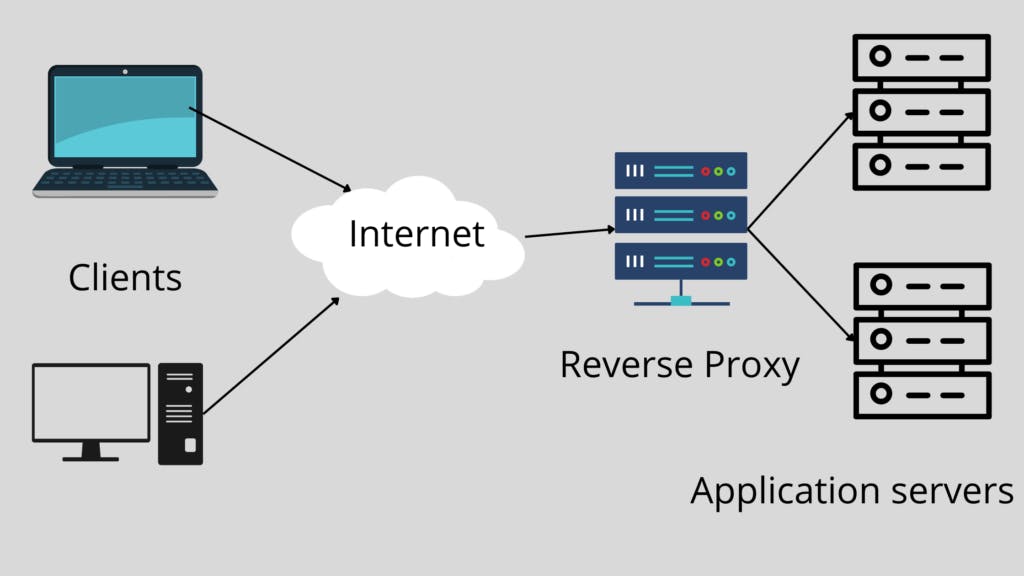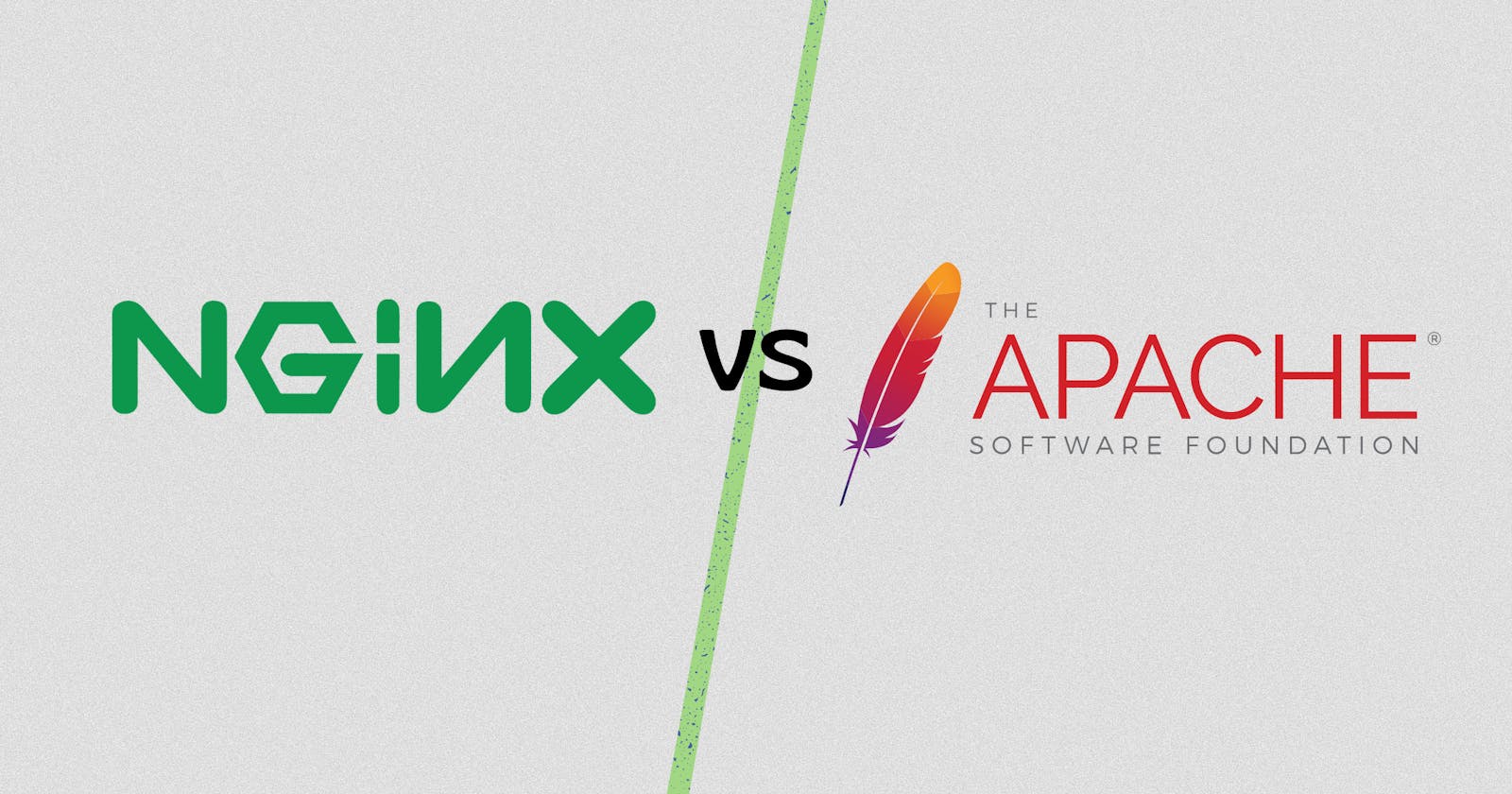Nginx and Apache are two of the most popular web servers in the world. They are both powerful and versatile and can be used for a variety of purposes. Nginx is known for its high performance and stability, while Apache is known for its flexibility and ease of use. Both web servers are open source and can be used on a variety of operating systems.
Most Web hosting providers provide any of the two and it is up to us to determine which web server better suits our needs.
What is a Web Server?
A web server is a computer program that runs on a computer and is used to serve content to the World Wide Web. It can also be used to run other programs or provide services.
How does a Web Server actually work?
A Web Server processes requests from the client computers and sends back the requested data. It is typically located on an IP address, which is a number that identifies an internet protocol address. The IP address can be used to locate the server on the internet and send its requests.
A web server uses one of two methods to process requests: TCP/IP or HTTP. When using HTTP, the server responds with HTML pages, images, videos, and other web content that match the request. When using TCP/IP, on the other hand, the server is typically running a single application that receives inbound requests from clients and processes them.
How Does Nginx Work?
Nginx is a popular web server that has been used in various places for years. It is open-source and can be found on many different operating systems.
It was created by Igor Sysoev in 2004 and is mostly used as a reverse proxy or load balancer. Nginx also uses TCP and HTTP protocols to handle requests from clients.
Nginx architecture consists of two parts, the worker process and the master process. The worker processes are responsible for handling client requests while the master process handles all tasks such as startup, configuration changes, logging, health monitoring, etc. It uses event-based architecture to handle requests. This helps in concurrent connections being handled simultaneously.
Nginx Pros
- Free and Open source
- Nginx is lightweight and has fewer resource requirements than Apache
- It offers a number of features that are not available in Apache
- Is able to handle more traffic than other web servers like Apache
- Nginx provides excellent performance and scalability.
- Easy to configure and deploy
Nginx Cons
- Is not as secure as other web servers like Apache
How Does Apache Work?
Apache is an open-source web server software under the apache software foundation. It was created in the early 1990s by a group of developers at the University of California, Berkeley.
The Apache server is structured in different modules used for different purposes but all share similar functionality. The Apache configuration includes both installation directories as well as files that are necessary for its operation. It uses a process-based architecture to handle requests. This results in a single process handling a single request.
Apache Pros
- Apache is a free and open source HTTP server
- It uses a modular design, which means that you can mix and match modules from different vendors to create your own custom configuration
- Apache offers a lot of security options to protect your website from hackers and other malicious entities
- It has strong performance due to its use of caching algorithms
- There are many add-ons available for the server that allow you to customize its functionality even further
- It is compatible with other web servers such as Nginx and Lighttpd.
Apache Cons
- Can be slow
- Consumes a lot of memory (Resource Intensive)
What’s the Difference Between Apache and NGINX?
NGINX and Apache are the two most popular web servers in the world. They are both open source and have been around for a long time. So what is the difference between them?
Architecture
Well, the biggest difference is that Apache uses a process-based model, while NGINX uses an event-based model.
To better understand the two architectures, we will use an analogy of a restaurant and a drive-thru.
At a restaurant, each customer has one waiter serving them. This is how the process-based model works. We have one request(customer) being handled by one process(waiter)
At a drive-thru, a customer is served by more than one person. One person could be taking the order, another person preparing the order and later another person will pack the order. In this scenario, we have a chain of delegation happening allowing for faster take-out service. This is how the event-based model works under the hood.
Apache Architecture
Apache uses a process-based architecture which is a software architecture that was first introduced in the Apache HTTP Server in 2000. It is a set of architectural principles and best practices for building, deploying, and operating high-performance web servers.
Apache process-based architecture consists of three layers: The application layer is where the user interface is rendered and managed. The presentation layer provides a view of the data to the user. The data layer handles all data processing.
Processes are created to handle particular requests or tasks, with each process having its own responsibility for handling that request/task. These processes communicate with each other through queues or shared memory to coordinate their work and pass information back up to higher levels of the system as necessary.
Nginx Architecture
Nginx event-based architecture is built on the idea that the best way to serve a request is to process it in the order it arrives.
The Nginx event-based architecture has been designed with scalability in mind and it is also a good fit for microservices. This architecture makes use of global variables and events that are used to trigger actions when certain conditions are met.
This means that NGINX can handle a lot more traffic than Apache can. It also uses less memory, which is important if you have a lot of traffic.
Load Balancing Capabilities
Another difference is that NGINX can act as a load balancer, while Apache cannot. This means that NGINX can distribute traffic across multiple servers, which helps to keep your site up even if one of your servers goes down. Using Nginx as a load balancer can help us take advantage of canary deployments to our application servers.
Reverse Proxy Capabilities
Nginx can also act as a reverse proxy while Apache cannot. A reverse proxy is able to hide the identity of the application servers.This way all the client applications will only know the identity of the reverse proxy but not the identity of the application servers.

Reverse Proxy Architecture
Simplicity
Configuring can be simple depending on your choice of data manipulation. Apache uses XML in its configuration while Nginx uses JSON in its configuration files. Depending on which format you are comfortable with, you can use either.
I personally prefer Nginx because I am more familiar with JSON and as a result find it easier to configure Nginx as a load balancer, reverse proxy or a general web server. Fine-tuning Nginx performance such as adding Http 2, and enabling Gzip compression is way easier.
Performance
When it comes to performance, it is dependent on the type of content being served. There are two types of content that are served by a web server; Static Content and Dynamic Content
Static Content
Static Content can be described as content that does not change every now and then. These include blog posts, landing pages etc.
When it comes to Static Content, the Nginx server seems to be the better option as it is able to serve static content in milliseconds compared to Apache. It serves Static Content 2.5 times faster than Apache.
Dynamic Content
Dynamic Content on the other hand is the content that keeps on changing based on the reactivity of the application. For example, if you have a video editing application, the content keeps on changing based on the inputs.
Apache is able to serve dynamic content better than Nginx. Nginx uses external processes such as PHP-FPM to serve dynamic content because it does not support dynamic content natively.
Platform
Nginx runs on modern Unix Systems such as Linux but does not support Windows Based Systems. Apache on the other hand runs on All Unix systems and Windows Based Systems
When should you use Apache?
You should use Apache if you want more flexibility and customisation. This is because Apache allows you to configure your own modules.
You should also use Apache if your application is dealing with a lot of Dynamic Content. It is way easier to use the built-in functionalities of Apache to serve dynamic content as opposed to relying on external processes in Nginx to serve the same Dynamic Content.
When should you use Nginx?
You should use Nginx if you want a lightweight web server. If your server resources are minimal, then Nginx is the best option because it consumes fewer resources as compared to Apache.
Nginx should be a no brainer if you are dealing with Static Content as it ticks all the boxes when it comes to serving static content.
If a load balancer or a reverse proxy is required in your stack,Nginx is your best bet in this scenario.
Nginx is also a good choice for a web server that can handle a lot of traffic in an efficient way.
Frequently Asked Questions
Can Nginx and Apache be Used Together?
They can both be used together to improve website performance. Nginx can act as a proxy server, which means it can allow Nginx to handle static content while Apache handles dynamic content. This can speed up website loading times.
Is the Apache HTTP server still used?
Apache HTTP Server is still used today. With a 31.5% market share, it is still one of the most used web servers in the world. Nginx, its closest rival, holds a 33.5% market share.
What language is Nginx written in?
Nginx Source Code is written in C programming language
Why is Apache so Popular?
Apache is popular because it is open source and is also flexible. The flexibility allows for easy customization and configuration.
Why is Nginx faster than Apache?
Nginx is faster than Apache because it uses event-based architecture which allows it to process multiple requests using one process.
In Closing
Deciding on a web server for your use case is an important step in setting up your website. Both Web servers serve content to the best of their ability and it is only right to choose a web server that will suit your needs.
I personally use Nginx as my web server and it is because I find it easier to configure and optimize to suit my needs. I have covered how to deploy a web application using Nginx and Apache and having used both I can say I preferred Nginx to Apache.
What Web Server is your preferred choice? Thank you for reading
The post NGINX vs Apache: Choosing The Best Web Server in 2022 appeared first on Ian Kumu's Blog.

